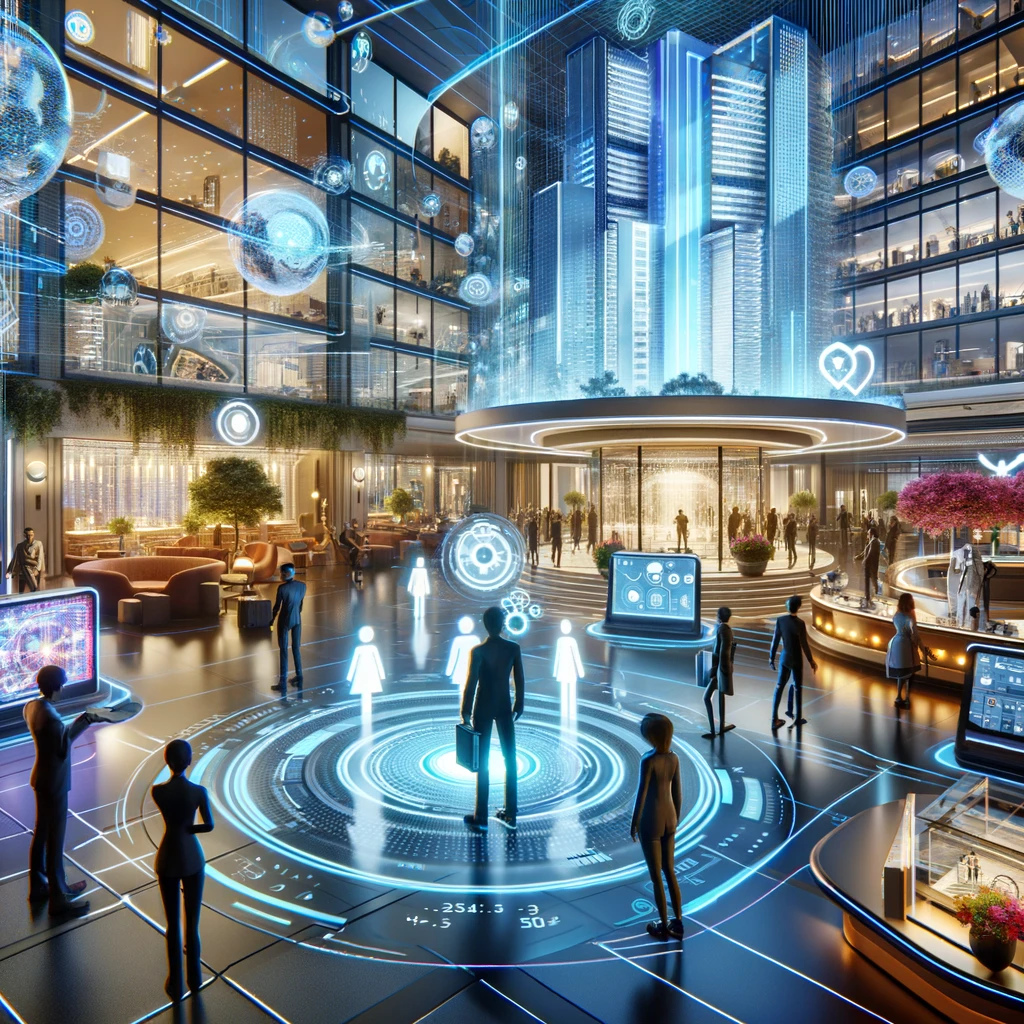In an era where digital innovation shapes every aspect of our lives, the hospitality industry is not lagging behind. With the advent of blockchain technology and the metaverse, hotels are exploring new frontiers in customer engagement and operational efficiency.
This blog post delves into how virtual hotels, NFTs, and the metaverse are transforming the landscape of hospitality marketing.
Virtual Hotels: Pioneering Digital Experience
Metaverse Integration:
Hotels are leveraging virtual avatars and the metaverse to offer immersive experiences of diverse locations worldwide. This innovation not only enhances customer interaction but also taps into new markets and new demographics.
Case study : Virtual Hotels
Millennium Hotels and Resorts launched their own offering, M Social, in Decentraland. Decentraland is a browser-based metaverse platform that allows users to buy and sell parcels of digital real estate, allowing Millennium to open up a virtual hotel.
Modeled to resemble Millenium’s real-world M Social hotels, the virtual hotel lets guests explore and rent or buy space there. The virtual hotel even has a lobby space for guests to hold virtual events, such as performances or project launches. M Social creates a link between the real world and the metaverse, giving Millennium a new way to reach guests.
RendezVerse creates metaverse replicas of real-world hotels, which guests can use to hold virtual events such as conferences. Working with Atlantis and Marriott, RendezVerse offers a “metaverse-as-a-service” model that uses Web3 technology to fill a niche in the hotel marketing space.
RendezVerse aims to create a metaverse-based community of hotel owners, event organizers, and other hospitality and events providers to open up new ways of connecting and marketing online. By creating digital twins of iconic hotels and venues, RendezVerse offers attractive digital spaces for events of all kinds.
Web3 booking and Loyalty Programs:
NFT Bookings:
Potential guests can virtually tour hotels, select rooms, and receive booking confirmations as unique NFTs. This approach mitigates risks associated with cancellations and drives fresh reservations.
Blockchain & NFTs:
By storing loyalty program data on the blockchain and issuing NFTs containing this information, hotels can create more engaging and memorable loyalty experiences for guests.
Case Studies:
Successful NFT Integrations in Hospitality Marketing
- Marriott International: Leveraged NFTs during Art Basel Miami, enhancing customer engagement and market share.
- Travala: Developed an NFT-based travel rewards program, boosting site traffic and bookings.
- Unchained Elephants: Merged NFTs with wildlife conservation, creating a unique value proposition in Thailand.
- Dream Hotels & NoMo SoHo: Employed NFTs for exclusive memberships and pre-sell hotel packages, enhancing guest experiences.
- Pinktada: Offered flexible booking options and guaranteed revenue streams through Room-Night Tokens.
Operational Simplicity through Tokenization:
NFTs and smart contracts are streamlining hotel operations:
Reducing staff workloads, and improving data management. Virtual duplicates of hotels help in managing daily tasks like maintenance and inventory.
Conclusion:
The fusion of Web3 technologies with the hospitality sector marks a pivotal shift in how hotels interact with their customers. This integration not only promises enhanced experiences but also opens doors to novel revenue streams and operational efficiencies.
As these technologies continue to evolve, the hospitality industry stands on the brink of a digital revolution : Web3 loyalty, one that promises to redefine the essence of travel and accommodation.



